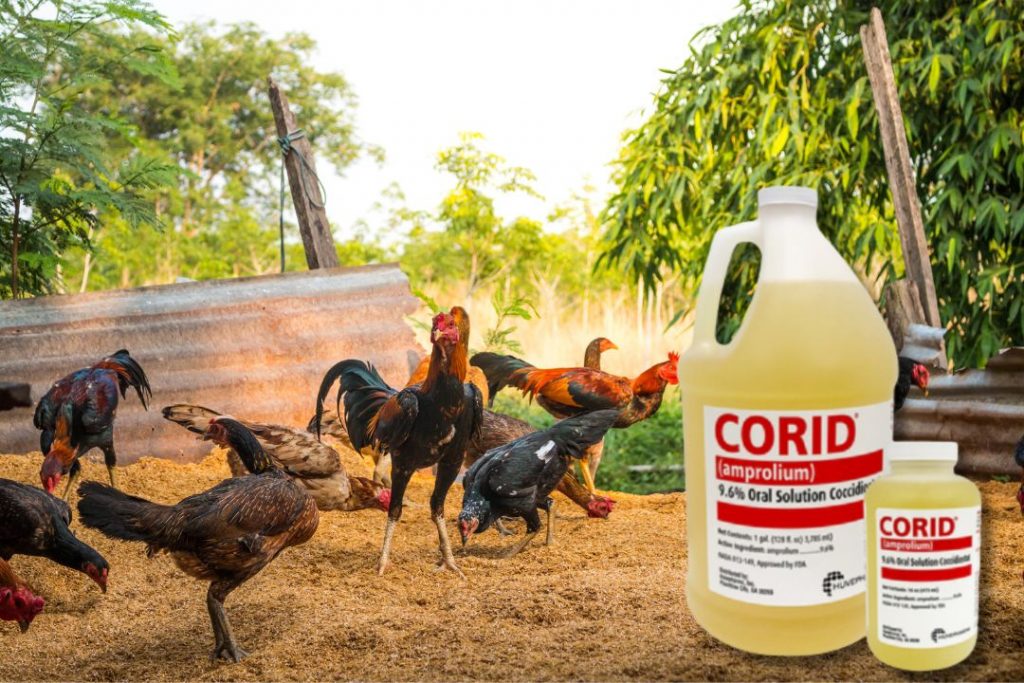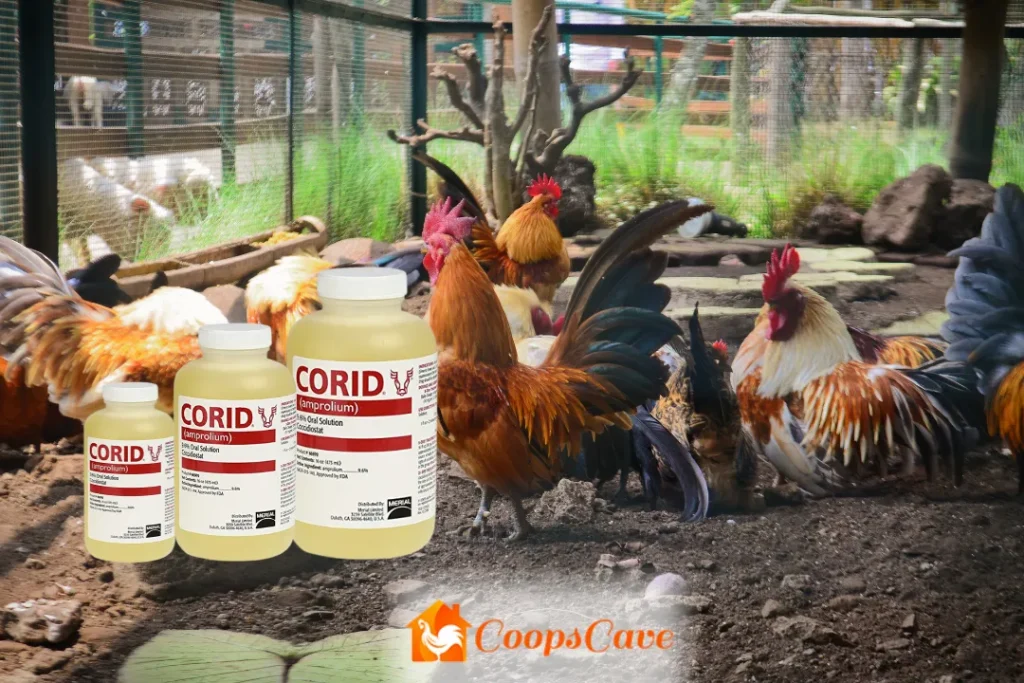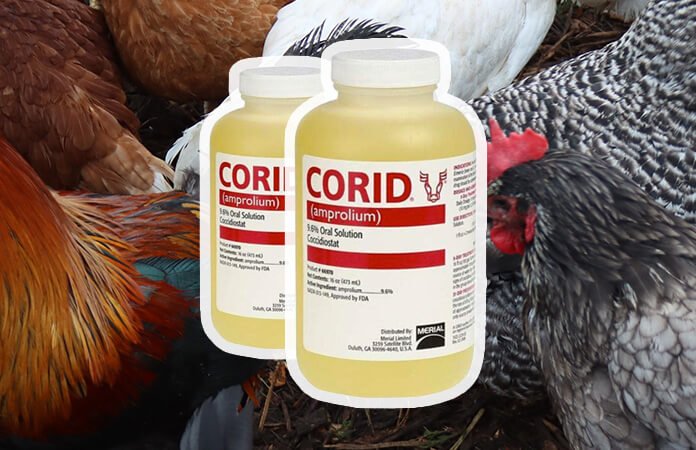Your go-to resource for understanding the ins and outs of corid chickens treatment in poultry. If you’re a chicken owner looking to safeguard the health of your flock, it’s crucial to be well-versed in the mechanisms, dosage, and potential side effects of using Corid. Let’s dive into everything you need to know to keep your feathered friends healthy and happy!
Understanding corid chickens A Guide to Coccidiosis Treatment
Coccidiosis is a common and potentially deadly disease in chickens caused by microscopic parasites. Corid, also known as amprolium, is a widely used medication for treating coccidiosis. Understanding how Corid works is essential for effective treatment.
Corid works by disrupting the parasite’s ability to multiply and spread in the chicken’s intestines. It targets the coccidia protozoa that cause coccidiosis, helping to stop further damage to the bird’s digestive system.
When it comes to dosing Corid for chickens, precision is key. Following the recommended dosage instructions based on your flock size and severity of infection is crucial for successful treatment outcomes.
By incorporating Corid into your poultry health management plan when needed, you can help protect your chickens from the harmful effects of coccidia infestations.
Signs and Symptoms of corid chickens When to Use Corid
Corid chickens can be a lifesaver when it comes to combating coccidiosis, a common and potentially deadly intestinal disease in poultry. Recognizing the signs and symptoms of coccidiosis is crucial for knowing when to utilize Corid as a treatment.

Keep an eye out for symptoms like bloody diarrhea, decreased appetite, lethargy, and weight loss in your flock. If you notice these signs, it’s essential to act quickly.
Early intervention with Corid can help prevent further spread of the disease within your flock and minimize potential losses. Remember that prevention is key when dealing with coccidiosis.
Regularly monitoring your chickens’ health and living conditions can also play a significant role in preventing outbreaks of this parasitic infection. By staying vigilant and proactive, you can ensure the well-being of your feathered friends.
Administering corid chickens Best Practices and Safety Tips
Administering Corid to chickens requires attention to detail and proper dosages. Before starting treatment, ensure you have the correct formulation suitable for poultry use. Follow the instructions on the package carefully and accurately measure out the dosage according to your flock size.
It’s essential to provide clean drinking water mixed with Corid as the sole source of hydration during treatment. Make sure there are no other water sources available to prevent under or overdosing. Monitor your chickens closely while administering Corid to ensure they are consuming the medicated water consistently.
To reduce stress during treatment, maintain a calm environment around your coop and handle your birds gently when checking on them. Remember that prevention is key in managing Coccidiosis, so follow recommended biosecurity measures and keep living conditions sanitary at all times.
Always consult with a veterinarian if you have any concerns about administering medication or if you notice any adverse reactions in your flock during treatment with Corid. Prioritize their health and well-being above all else when implementing this medication regimen for optimal results.
Preventing corid chickens Strategies for Maintaining Flock Health
To maintain a healthy flock, preventing coccidiosis in chickens is key. Implementing good hygiene practices is crucial – regularly clean the coop, provide fresh bedding, and ensure access to clean water. Rotating grazing areas can also help reduce exposure to contaminated soil. Incorporating probiotics into their diet can support gut health and boost immunity against coccidia.
Another strategy is to limit overcrowding in the coop as stress weakens the birds’ immune systems, making them more susceptible to infections like coccidiosis. Providing ample space for exercise and ensuring proper ventilation are essential for promoting overall well-being in your flock.
Additionally, practicing biosecurity measures such as restricting visitors from entering the coop and quarantining new birds before introducing them to the existing flock can help prevent the spread of diseases. Regularly monitoring your chickens for any signs of illness or abnormal behavior can aid in early detection and prompt intervention if needed.
Potential Side Effects of corid chickens What to Watch For
Corid for chickens is an effective treatment for coccidiosis, but like any medication, it comes with potential side effects to be aware of. One common side effect is a decrease in feed consumption as the birds may experience some mild digestive upset during treatment. Another possible side effect is temporary weight loss due to decreased appetite.

In some cases, chickens may show signs of lethargy or weakness while being treated with Corid. It’s important to monitor their energy levels closely during this time. Additionally, there might be changes in droppings consistency or color which can indicate the medication’s impact on the bird’s gastrointestinal system.
Keep an eye out for any allergic reactions such as skin rashes or difficulty breathing when administering Corid to your flock. If you notice any severe or prolonged side effects, it’s crucial to seek veterinary advice promptly and consider adjusting the dosage or alternative treatments available.
corid chickens When to Seek Professional Advice About Corid Use
If you notice that your chickens are not responding well to the corid treatment, it may be time to seek professional advice. Veterinarians specializing in poultry health can provide valuable insights and guidance on how to adjust the dosage or explore alternative treatments.
Additionally, if you observe any unexpected side effects or worsening symptoms after administering corid, consulting a professional is crucial for the well-being of your flock. They can conduct further tests to determine the underlying issue and recommend appropriate interventions.
Professional input becomes essential if you have multiple birds affected by coccidiosis simultaneously or if outbreaks persist despite treatment efforts. A veterinarian can help assess the overall health of your chickens and implement comprehensive strategies to manage and prevent coccidiosis effectively.
Remember, seeking timely professional advice when dealing with complex poultry health issues like coccidiosis demonstrates your commitment to providing optimal care for your feathered friends.
Conclusion:
Understanding how to effectively use corid for chickens is essential in maintaining the health and well-being of your flock. By being aware of the signs and symptoms of coccidiosis, knowing when to administer corid, following best practices for dosage and administration, implementing preventative measures, monitoring for potential side effects, and seeking professional advice when needed, you can successfully manage coccidiosis in your poultry.
Remember that prevention is key in keeping your chickens healthy. Regularly cleaning their living quarters, providing clean water and feed, minimizing stress factors, and practicing good biosecurity measures are all important steps in preventing coccidiosis outbreaks.
By staying proactive and informed about corid usage for chickens, you can help ensure a thriving flock free from the harmful effects of coccidia parasites. Your dedication to their care will ultimately lead to healthier birds and a more sustainable poultry operation.
